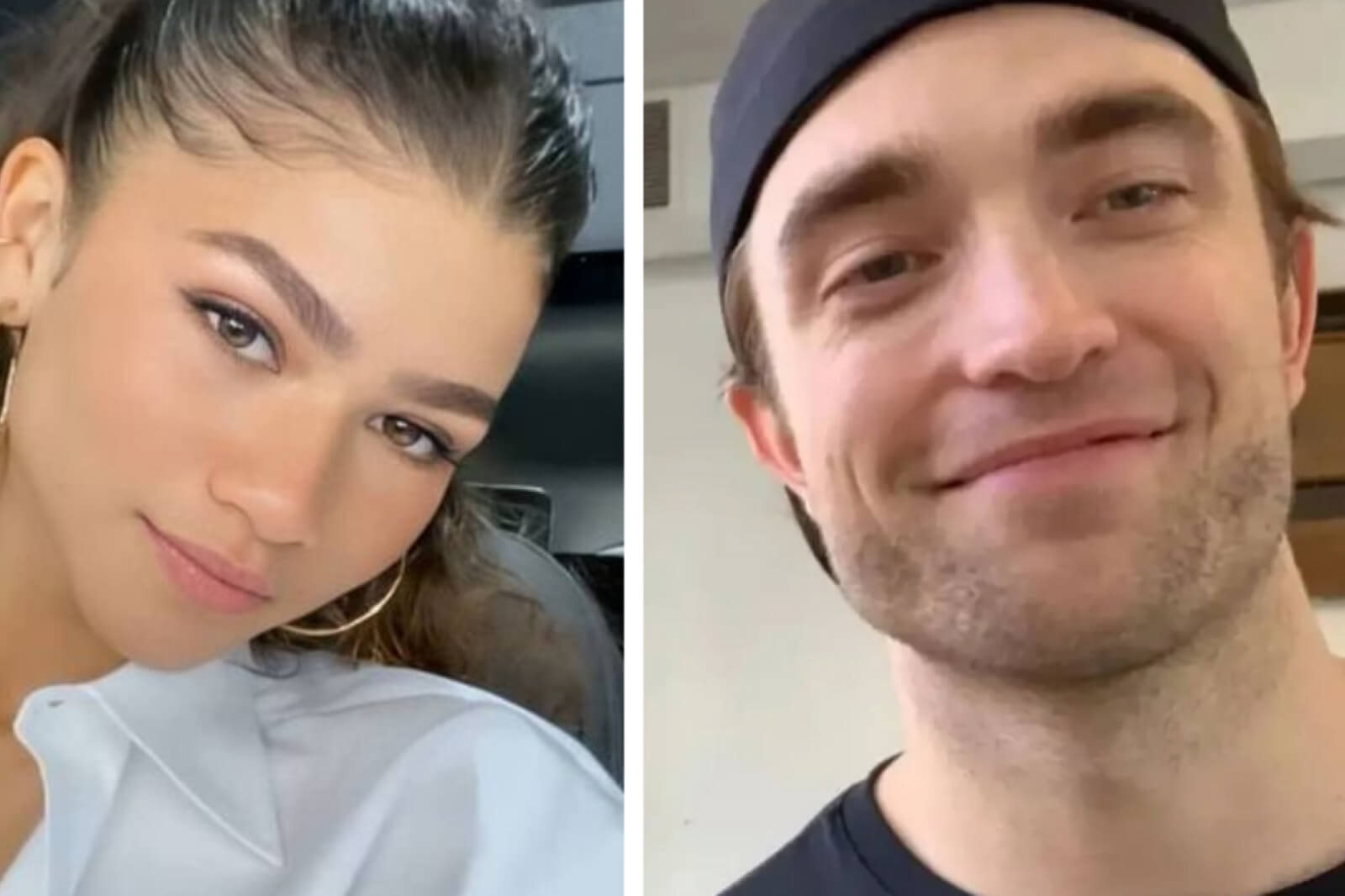King Princess is a different kind of gay icon.
While many stars have indoctrinated themeslves into the gay community by becoming beloved by mostly gay men, it’s rare to see a star become beloved specifically by the lesbian and bisexual/pansexual femme community.
King Princess (whose real name is Mikaela Straus) burst onto the scene at a cultural moment that seemed overripe for a queer femme-focused star. She was preceded by Hayley Kiyoko, whose openly queer music earned her the moniker “Lesbian Jesus,” and she’s very far from the only queer femme musician around. But other than Kiyoko, she’s one of the few to build a successful pop career off of a specifically lesbian-oriented aesthetic. She’s garnered quite a following, and her shows have become safe spaces for queer women looking to express themselves openly and loudly.
Strangely, in an interview with Entertainment Weekly, Straus implied that she’s not well-versed in the queer female community that loves her so much. “My shows are [filled with] very queer females, which is interesting because I cannot tell you a community that I have been less apart of in my life than that,” she said. “It makes me interested in what’s happening with them.” Presumably, Straus is saying that as she identifies more with drag and nonbinary communities than the queer female sphere, but it’s still a confounding statement, delivered without context in an article called “The Unapologetic Queerness of King Princess.”
This raises the question: Could all this be an act, a well-timed and excellently executed branding technique? In all likelihood, it probably is, at least in part. King Princess’s authenticity (a generally meaningless term) has been criticized extensively, and for good reason—she grew up in the music industry, as her father was a recording engineer and owned Mission Sound Studios, and her great-great-grandfather was a co-owner of Macy’s. All of this meant she was offered a record deal at age 11 (which she turned down), but it allowed her to release an extremely successful EP in 2017; “1950” rests at a cool 300 million streams on Spotify.
Probably at least a thousand of those streams are this writer’s, as “1950” is a gem of a song. Fortunately, her debut LP Cheap Queen continues in that song’s vein, keeping with the lush harmonies, hefty beats, and glossy 80s pop and rock influences that made that song such a standout.
In contrast to that song and much of her earlier work, Cheap Queen moves away from explicit references to queer culture and focuses on the dissolution of a relationship; take a step back, and it’s largely about performance, curation, and fame. The songs are confident and forthcoming, buoyed by modern beats and rich, warm mixes. In some ways, the album’s glistening, glittery finish is anti-DIY, totally committed to its own poshness and self-seriousness.
King Princess – King Princess: Deep Inside Cheap Queenwww.youtube.com
In that way, you could see it either as the product of someone born with a silver spoon who’s successfully capitalized on queer aesthetics and popular music’s most familiar and trustworthy sounds and images—or you could view it as the passion project of someone who truly understands the meaning of drag and camp, and who is, as the Entertainment Weekly article states, “queering queerness, whether she knows it or not.”
Ironically, in terms of its subject matter, Cheap Queen actually isn’t that explicitly queer. It’s more of a discussion of relationships, free from gender and sexuality; its lyrics are pure pop, cut through with a thread of Gen-Z angst but without becoming brooding. Sonically, it’s relatively subdued and mellow, avoiding controversy or extremes, perfect for chill playlists or summer nights (perhaps it should’ve been released in June instead of October).
Cheap Queen is at its most out and proud when Straus sings about drag. The cover photo features King Princess clad in light drag makeup, armpit hair showing, casting a disdainful glare at the camera. King Princess identifies as genderqueer, still uses she/her pronouns, and drag has been a huge influence on her life and work. “Drag for me is just such an extension of my queerness because it was how I learned to become comfortable with myself,” she told Entertainment Weekly. “I feel so grateful to drag because…RuPaul and everything that has made drag mainstreamed it in a way where a girl from Brooklyn, who didn’t feel like a girl, saw drag, and learned how to become a woman.”
King Princess – Playboy School Of Popwww.youtube.com
Drag, of course, began as a way for queer people to express themselves and their sexuality in a creative and liberating medium. Like its aesthetic sibling, camp, it originated largely in black queer communities, working as a subversive form of expression that existed outside of and in opposition to established hierarchies.
Women and lesbians have always dressed as men in drag, but of late, increasing numbers of women and nonbinary femmes have been using drag as a way to subvert expectations of femininity. In an article from The Guardian, Rebecca Nicholson writes, “It’s a deliciously complicated web to untangle: these are women, performing as what would have been (historically, at least) a man performing as a woman. These female queens are traversing gender boundaries as well as putting on outrageously entertaining performances, often in the face of prejudice and misogyny, even within queer culture.”
The fact that cis women have begun performing femme drag has been met with some discomfort and accusations of cultural appropriation and fetishization, though these arguments have also been criticized. In Dazed, Jake Hall writes, “The irony is that drag is designed to disrupt gender norms – anyone can bind, stuff, pad and ‘perform’ gender to an exaggerated extent.” Many have also argued that criticizing female drag performers places too much emphasis on genitalia and bodies themselves, when drag is supposed to be an inclusive space, one dedicated to the deconstruction of gender and exclusivity, and one that can be liberating for nonbinary people or anyone struggling to come to terms with their gender identity. Plus, queer women and nonbinary people have always been around, and trans women like Silvia Rivera and Marsha P. Johnson were at the forefront of early battles for LGBTQ+ rights.
In the midst of this sacred tradition enters King Princess, who has largely avoided mainstream controversy thus far. Most publications have branded her as a victorious new kind of queer icon. It’s hard to say how her legacy will hold up, but for now, she seems to have hit a sweet spot between ingenious branding and a genuinely meaningful message.
Whatever you think of King Princess and the way she uses queerness, she is creating an inclusive space where queer people can congregate and celebrate their identities, with all their inherent fluidity, confusion, and contradictions. And in a way, wasn’t that always the point of queer activities like drag, which are inherently, beautifully performative? Aren’t they supposed to be about the presentation, the artifice, and the show, highlighting the cracks in the idea that anyone has a fixed gender identity and shattering the idea that anyone is exempt from performing their gender, style, and selfhood all the time?
Maybe King Princess should have the final word on this. “Growing up, I thought it was much more simple,” she told Vice. “I was just like, ‘I’m gay.’ But now that I have the words to describe how I’ve always felt, it makes it complicated.” She’s quick to clarify that this is a good thing. “I like that complication, because we are all walking dichotomies of some sort. We are all just walking contradictions. I don’t think any of these identities are mutually exclusive.”
- King Princess Puts Modern Romance in a Musical Time Machine … ›
- King Princess on ‘Cheap Queen,’ queerness, Mark Ronson | EW.com ›
- Cheap Queen by King Princess on Spotify ›
- King Princess ‘Cheap Queen’ Album Review – Stereogum ›
- King Princess Sets Date For Cheap Queen, shares “Ain’t Together … ›
- Cheap Queen by King Princess Reviews and Tracks – Metacritic ›
- King Princess – Cheap Queen Lyrics | Genius Lyrics ›
- King Princess – Cheap Queen – YouTube ›
- King Princess on Her First LP, ‘Cheap Queen’ ›
- King Princess – Cheap Queen (Official Video) – YouTube ›













